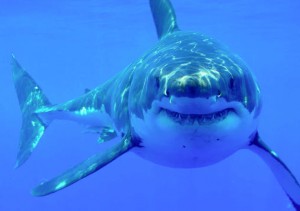MONDAY, 25 NOVEMBER 2013
Most of us are familiar with the idea that human activities are currently driving the world’s sixth mass extinction of animal and plant species. The Convention of International Trade in Endangered Species of Wild Fauna and Flora (CITES) is an inter- governmental agreement set up to protect animal and plant species at risk of extinction due to trading. Governments can opt in to the legally binding convention and must then implement appropriate laws to ensure CITES agreements are upheld. Earlier this year, delegates of the convention marked its 40th anniversary with a meeting in Thailand.The conference was surrounded by controversy due to it being hosted in Bangkok. In Thailand, trade in ivory from native elephants is legal, creating an opportunity for smugglers to sell laundered African ivory. Elephant poaching in Africa is at a twenty year high, with an estimated 50 to 100 elephants killed daily. The suspected cause is increased demand from Asia where ivory is used to make traditional medicines and ornaments. By the end of the two- week session, eight nations thought to be primary suppliers and importers of ivory were identified as needing to make drastic changes. Action plans were demanded and acquired from the ‘Gang of Eight’, including China, Kenya and Thailand. If not proactive in enforcing their proposals they face sanctions, such as the banning off all wildlife trade, which would have particularly devastating impacts on the economies of China, Thailand and Vietnam, where trading in wild orchids and crocodile skin are major sources of income.
However, the closing of the meeting heralded more immediate blows to the economies of Southeast Asia. Despite regulations on the trade of three shark species (great white, basking and whale), an estimated 100 million sharks are killed annually—a rate thought to outstrip their population growth. Previous bans have focused on the barbaric practice of finning, in which fins are cut off live fish at sea before dumping the body overboard. Sadly, the fins are so valuable that this simply resulted in the sharks being brought ashore instead. Much of the demand is from China, where shark fin soup is traditionally served at special occasions. In a marginal vote, delegates extended the number of protected sharks to include the oceanic whitetip, porbeagle and three types of hammerhead. Whilst the vote does not ban fishing of these sharks, fisheries will now have to provide evidence of using sustainable harvesting practices. This will enable more accurate assessment of population sizes and hopefully allow stocks to recover.
A surprising outcome of the meeting was the decision to not upgrade the current regulation on polar bear trade to a complete ban on trading any bear parts. The Inuit of the Canadian Arctic hunt the bears to sell their pelts as rugs as well as exporting fangs and paws. One of the main arguments against the ban was that the trade threat to polar bears is insignificant in comparison to the problems induced by climate change. Another was that trading of bear parts is essential to the economies of the Inuit, who live in such inhospitable conditions that agricultural practices are simply not feasible. Many conservationists were outraged by the decision, but others agreed international trade has little effect on bear populations.
Member states were also asked to prosecute criminals involved in the poaching and trafficking of rhinoceros horns and emphasis was placed on using forensic analysis to identify the source of seized horns. Perhaps surprisingly, the South African government is considering applying to legalise the trade in rhino horn at the next CITES conference. They argue that whilst the trade ban has worked to conserve rhinos in the past, it is now driving up prices fetched by horn and therefore poaching levels. They cite the success of legalising the trade of crocodile skin as justification. It remains to be established which countries would be potential legal buyers, and whether adequate security measures to control the trade can be taken.
The next CITES meeting in 2016 in South Africa will assess the impact of the changes implemented by the ‘Gang of Eight’; hopefully, the decisions made in the 2013 meeting, described by many as “historic”, will help put an end to extinction.
Emily Pycroft is a 2nd year undergraduate in Biological Natural Sciences at Sidney Sussex College

